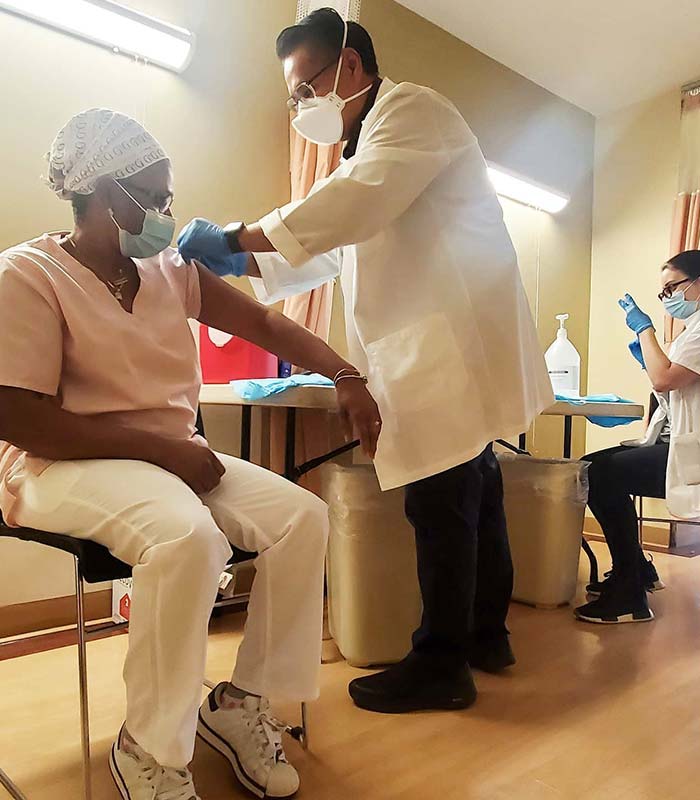Personal Protective Equipment – Face Masks
Policy
Facility personnel must wear face masks when performing any task that may involve the splashing of blood or body fluids into the nose or mouth.
Policy Implementation
Facility personnel must wear a face mask when performing any task that may involve the splashing of blood or body fluids into the nose or mouth and when the use of eyewear is indicated.
A face mask should be used only once and then discarded into the appropriate receptacle located in the room in which the procedure is being performed. Face masks should only be handled by the strings when being removed.
Face masks must be changed when they become moist or soiled.
USING FACE MASKS
Purpose:
To guide the use of masks.
Objectives
To prevent transmission of infectious agents through the air;
To protect the wearer from inhaling droplets;
To prevent transmission of some infections that are spread by direct contact with mucous membranes;
To prevent the splashing of blood or body fluids into the mouth or nose; and
To prevent exposure to the HIV (AIDS) and hepatitis B viruses from blood or body fluids.
Equipment and Supplies
High-efficiency disposable masks; or
Cotton gauze or paper tissue masks; and
Eyewear (e.g., goggles) (Note: When the use of a mask is indicated, appropriate eyewear must also be worn.).
Miscellaneous
Put the mask on before entering the room and after cleaning hands.
Be sure that face mask covers the nose and mouth while performing treatment or services for the patient.
If the face mask becomes wet, change it. Masks become ineffective when moist.
Do not hang the face mask around the neck.
Before changing a face mask, wash hands.
Do not remove the mask while performing treatment or services for the patient.
Use a mask only once and then discard it.
Handle mask only by the strings (ties).
Never touch the mask while it is in use.
Follow established handwashing techniques.
When to Use a Mask
When providing treatment or services to a patient who has a communicable respiratory infection;
When providing treatment or services to a patient and the use of a mask is indicated; and
When performing a task that may involve the splashing of blood or body
